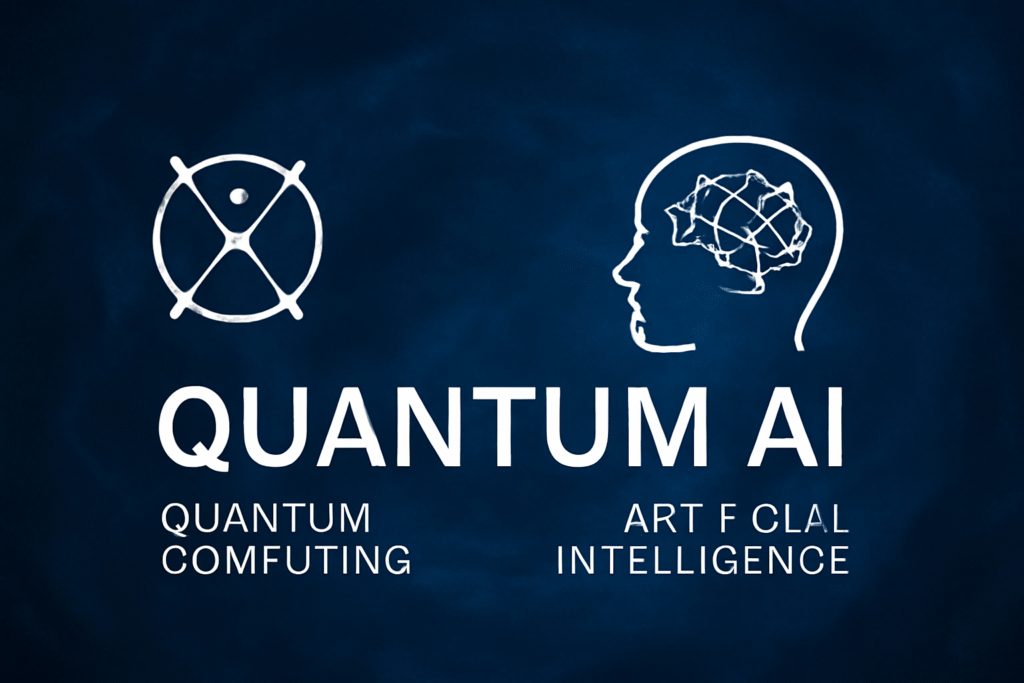Artificial Intelligence (AI) has been at the forefront of technological advancements for the past few decades, driving innovations across industries such as healthcare, finance, education, and more. However, with the arrival of Quantum AI, the landscape of AI is about to undergo a dramatic transformation. This article dives deep into what Quantum AI is, its potential applications, and how it will reshape the future of technology.
What is Quantum AI?
Quantum AI is a revolutionary integration of quantum computing with artificial intelligence. To understand how this works, let’s break down the two components:
Quantum Computing: Quantum computing relies on the principles of quantum mechanics, which govern the behavior of particles at the atomic and subatomic levels. Unlike classical computers, which process information in binary (1s and 0s), quantum computers use quantum bits or qubits. These qubits can exist in multiple states simultaneously, allowing quantum computers to solve complex problems much faster than traditional computers.
Artificial Intelligence (AI): AI refers to machines or software systems that can perform tasks that typically require human intelligence, such as decision-making, learning, speech recognition, and visual perception. AI systems can be designed to solve problems, analyze data, and make predictions based on large datasets.
When these two technologies combine, Quantum AI has the potential to significantly enhance the speed and efficiency of machine learning algorithms, optimize complex problem-solving, and unlock new capabilities in data analysis.
How Does Quantum AI Work?
Quantum AI works by leveraging the computational power of quantum computers to run AI algorithms that can analyze large datasets, solve complex optimization problems, and perform calculations much faster than classical computers. Some key features of Quantum AI include:
Superposition: This allows quantum bits (qubits) to exist in multiple states at once, making quantum computers far more powerful than classical computers.
Entanglement: Qubits can be entangled, meaning the state of one qubit can instantly influence the state of another, even if they are far apart. This property helps speed up data processing and increases the capacity of quantum systems.
Quantum Interference: Quantum AI uses interference to manipulate probabilities and find the most optimal solutions quickly.
By applying these principles to machine learning algorithms, Quantum AI can process information at a much higher speed and scale, enabling more accurate predictions and solutions.
Key Applications of Quantum AI
Quantum AI is still in its infancy, but its potential applications are vast and could revolutionize several industries. Here are some of the most promising areas where Quantum AI could have a significant impact:
1. Drug Discovery and Healthcare
One of the most exciting areas of Quantum AI is in healthcare, particularly in drug discovery. Traditional drug discovery processes are time-consuming and expensive, but with the computational power of quantum computers, researchers can simulate molecular structures and chemical reactions at an unprecedented scale.
Quantum AI could enable the identification of new drugs and treatments for diseases such as cancer, Alzheimer’s, and other complex conditions. It will allow researchers to explore the interactions between molecules at a level of detail that was previously impossible with classical computers.
2. Financial Services and Risk Management
The financial sector stands to benefit greatly from Quantum AI. Quantum computers can model complex financial markets and optimize portfolios at much faster speeds than classical computers. By analyzing large datasets in real-time, Quantum AI can assist in making more informed decisions, detecting fraudulent activities, and forecasting market trends.
Additionally, Quantum AI can significantly improve risk management strategies by simulating various scenarios to understand potential outcomes. This ability to predict future events with higher accuracy can help financial institutions make better investment decisions.
3. Supply Chain Optimization
Supply chains are becoming increasingly complex, especially in industries like manufacturing and retail. Quantum AI can optimize supply chain management by processing massive amounts of data related to logistics, inventory, production schedules, and demand forecasts.
By solving optimization problems faster, Quantum AI can help businesses reduce costs, improve efficiency, and enhance overall performance. This could lead to more agile supply chains, with the ability to quickly adapt to changing market conditions.
4. Artificial General Intelligence (AGI)
One of the long-term goals of AI research is to develop Artificial General Intelligence (AGI), which refers to a machine with the ability to understand and learn any intellectual task that a human can perform. Quantum AI could significantly accelerate the development of AGI by enabling faster and more efficient learning algorithms.
Quantum computers’ ability to handle large and complex datasets will enable AI systems to learn more effectively, potentially bringing us closer to the realization of AGI.
Challenges of Quantum AI
Despite its enormous potential, Quantum AI faces several challenges that need to be addressed before it can reach its full potential. Some of these challenges include:
1. Quantum Hardware Limitations
Building large-scale quantum computers is an enormous technical challenge. While progress is being made, quantum computers are still in the early stages of development. Current quantum computers are prone to errors, and scaling up the number of qubits remains a significant hurdle.
2. Quantum Software Development
Another challenge is the development of quantum algorithms that can work effectively with quantum computers. Many quantum algorithms are still being researched, and the process of developing quantum AI software is complex. Additionally, new programming languages and frameworks need to be developed to work with quantum systems.
3. Data Security
Quantum computing has the potential to break traditional encryption algorithms, which could pose a threat to data security. This is particularly concerning for industries that rely on secure communication, such as banking and healthcare. As Quantum AI becomes more advanced, developing quantum-safe encryption methods will be crucial to ensuring data privacy and security.
4. Ethical and Societal Implications
The rapid development of Quantum AI could raise ethical and societal concerns. The use of Quantum AI in surveillance, warfare, and decision-making processes could have profound implications on privacy and civil liberties. It is important that policymakers, researchers, and businesses work together to establish ethical guidelines for the responsible use of Quantum AI.
The Future of Quantum AI
The future of Quantum AI is still unfolding, but its potential is undeniable. As quantum computing technology advances and more researchers and organizations explore the possibilities of Quantum AI, we can expect significant breakthroughs in fields such as medicine, finance, and artificial intelligence.
In the coming years, Quantum AI could become a mainstream technology, providing businesses and industries with tools to solve problems that were once considered unsolvable. As the technology matures, we may see the development of quantum-based AI systems capable of achieving Artificial General Intelligence, fundamentally changing the way we interact with machines.
Conclusion
Quantum AI represents the next frontier in the world of artificial intelligence and quantum computing. By combining the computational power of quantum systems with the capabilities of AI, we are on the verge of unlocking new possibilities that were previously unimaginable. From revolutionizing healthcare and finance to optimizing supply chains and advancing artificial general intelligence, Quantum AI has the potential to shape the future in profound ways.
While challenges remain, the ongoing research and development in the field of Quantum AI are promising. With continued progress in quantum hardware, software, and algorithms, we can expect to see Quantum AI become a transformative force across industries, paving the way for a smarter, more efficient, and more interconnected world.
Read More: Trading Contant




